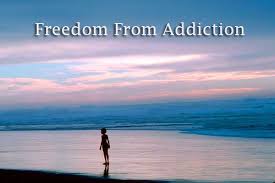NewDay Counseling
If you have a problem with alcohol or some other drug, call a NewDay counselor at 912.201.3605 * 401 Mall Blvd, Ste 101 D, Savannah, Ga * Free Phone Consultations
Freedom from Addiction

It’s hard for the non-addict to imagine the loss of freedom that comes with addiction. Addiction is progressive and it advances in stages. In the early stages of addiction, it’s hard to recognize and accept. Many people go through life stages where they drink too much or party a little too hard, but they don’t lose their ability to leave it alone when they want to cut back. The non-addict might misuse alcohol or some other drug on occasion, but they can cut back when necessary. The addict, in the early stages of addiction, can cut back at times, but then will lose control at times, never knowing when they’ll intend to drink a few beers, say, but wind up getting smashed. In the beginning, these episodes of control-loss are easily rationalized — I saw an old high school buddy — I had a bad day at work — I got caught up in the party atmosphere — so on an so forth. Alcoholism, especially in the early stages, has been called controlled/uncontrolled drinking. When you think about it, the non-addict hardly ever thinks in terms of “control”. Just having to control drinking can be a sign of a problem.
When addiction advances and the periods of control-loss become more common and the consequences build up, the addict might become secretly worried that he/she is losing control. The rationalization and excuse making becomes harder and more elaborate. The addict might even admit that emotional problems exist from the past that could be the reason for the increase in drinking/drug using. This is where addiction becomes murky when searching for cause and effect. When the addict loses control on a regular basis and does things they never intended to do, it seems like a mental or emotional disorder. Traditional psychology has promoted this explanation of addiction, but medicine and science declared addiction a chronic brain disease long ago. This doesn’t mean that mental and emotional problems don’t coexist or are not caused by the chaos of addiction, but in order to gain liberty from addiction, the addict must first stop using the drug that’s causing the problems or preventing the person from dealing with problems. An alcoholic can deal with emotional problems but continue to drink alcoholically, because the alcoholic has developed a combination of physical dependence and mental obsession that drives them to drink regardless of their mental health.
Also, just quitting drinking or drugging doesn’t free the person from addiction. There is much more that needs to be done before an addict can claim freedom. The first step is admission of slavery to the drug, which is not hard to do in the later stages. When an addict wakes up in the middle of the night craving a fix from their drug of choice, and when the addict can no longer control the drug except for short periods of time, when the addict starts losing time in blackouts, not sure what they’ve done, then that person is no longer free, and it’s a miserable existence. Admission of slavery to the drug must be followed by action, asking for help. Most drug addicts can’t get off the drug by themselves, and even if they can, staying off is the trick.
Recovery Management is the key to long term recovery, and we’ve discussed Recovery Management in this blog many times. The feeling of freedom, once a person in truly in recovery, can seem miraculous — it’s a life changing transformation. In AA, a part of many meetings is the telling of a story of how it was, what happened and what it’s like today. These stories of recovery are powerful, and the newcomer finds hope in recovery stories. Most people only hear the negative consequences of addiction, but recovery is real and happens each day. Asking for help can set in motion a life long journey of sobriety and good living. Recovery happens — the addict can be free.
Recent Comments